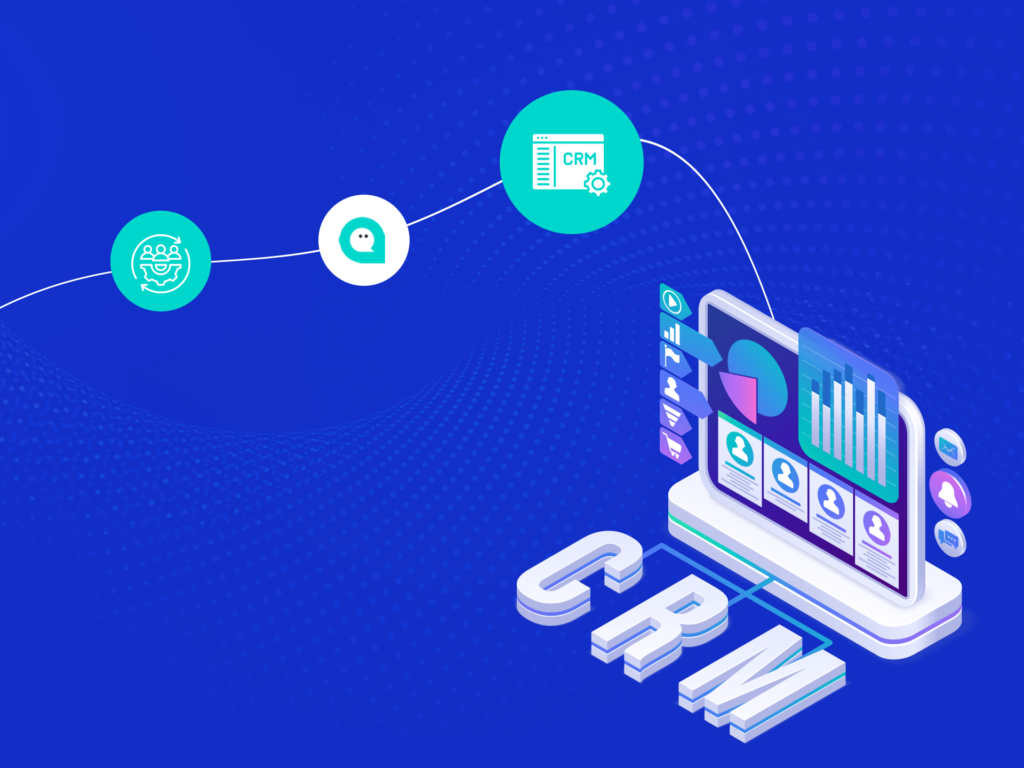In today’s fast-paced business environment, Customer Relationship Management (CRM) systems have become indispensable tools for organizations striving to enhance their operational efficiency. Integrating your CRM with other essential business applications can significantly streamline processes, improve data accuracy, and boost overall productivity. In this comprehensive guide, we explore the top CRM integrations that can propel your business efficiency to new heights.
1. Email Marketing Integration
Enhanced Customer Engagement
Integrating your CRM with email marketing platforms such as Mailchimp or Constant Contact allows for more personalized and targeted email campaigns. With this integration, you can leverage CRM data to segment your audience, send automated follow-ups, and track email interactions. This ensures that your messaging resonates with the right customers, fostering stronger relationships and higher engagement rates.
Streamlined Campaign Management
Automated data synchronization between your CRM and email marketing tools eliminates the need for manual data entry, reducing errors and saving valuable time. You can track campaign performance directly from your CRM, enabling you to make data-driven decisions and optimize future marketing efforts.
2. Social Media Integration
Improved Customer Insights
Connecting your CRM with social media platforms like Facebook, Twitter, and LinkedIn provides a wealth of customer insights. You can monitor social interactions, gather feedback, and analyze sentiment. This integration helps you understand your audience better, tailor your content, and respond promptly to customer inquiries.
Efficient Social Selling
Social media integration allows your sales team to engage with prospects directly from the CRM. By tracking social media interactions, sales representatives can identify potential leads, nurture relationships, and close deals more efficiently. This seamless connection between social platforms and your CRM ensures that no opportunity is missed.
3. E-commerce Integration
Unified Customer Data
Integrating your CRM with e-commerce platforms like Shopify, Magento, or WooCommerce consolidates customer data from various touchpoints into a single, comprehensive profile. This unified view enables you to understand purchasing behaviors, preferences, and trends, allowing for more personalized marketing and sales strategies.
Automated Sales Processes
With CRM and e-commerce integration, order details, inventory updates, and customer interactions are automatically synchronized. This automation reduces manual workload, minimizes errors, and ensures that your sales and support teams have up-to-date information at their fingertips, enhancing the overall customer experience.
4. Customer Support Integration
Seamless Support Experience
Integrating your CRM with customer support platforms such as Zendesk or Freshdesk ensures that support agents have immediate access to complete customer histories. This context enables agents to provide more informed and efficient assistance, resulting in quicker resolution times and higher customer satisfaction.
Proactive Issue Resolution
By leveraging CRM data, support teams can identify recurring issues and trends, allowing for proactive problem-solving. Automated workflows can also be set up to trigger follow-up actions based on specific customer interactions or issues, ensuring that no support request goes unresolved.
5. Marketing Automation Integration
Advanced Lead Nurturing
Integrating your CRM with marketing automation tools like HubSpot or Marketo enables sophisticated lead nurturing campaigns. You can automate workflows based on customer behavior, segment leads based on their engagement, and deliver personalized content at the right time. This targeted approach significantly enhances the efficiency of your marketing efforts.
Comprehensive Analytics
Marketing automation integration provides detailed analytics on campaign performance, lead conversion rates, and customer journeys. These insights are invaluable for refining your marketing strategies and ensuring that your resources are allocated effectively.
6. Accounting Software Integration
Accurate Financial Data
Integrating your CRM with accounting software such as QuickBooks or Xero ensures that financial data is accurate and up-to-date. This connection enables seamless invoicing, payment tracking, and financial reporting, reducing manual entry errors and saving time.
Enhanced Financial Insights
Access to integrated financial data allows for better financial forecasting and budget management. You can analyze customer profitability, track outstanding invoices, and make informed decisions to optimize your financial performance.
7. Project Management Integration
Coordinated Project Execution
Integrating your CRM with project management tools like Trello, Asana, or Basecamp ensures that customer-related tasks and projects are well-coordinated. This integration allows teams to track project progress, assign tasks, and manage deadlines within the CRM, promoting better collaboration and efficiency.
Improved Resource Allocation
With visibility into both customer data and project timelines, managers can allocate resources more effectively. This integration helps in balancing workloads, prioritizing tasks, and ensuring that projects are completed on time and within budget.
8. Telephony Integration
Streamlined Communication
Integrating telephony systems like RingCentral or Twilio with your CRM provides a unified communication platform. This integration enables call logging, automated dialing, and real-time call analytics, ensuring that all customer interactions are recorded and easily accessible.
Enhanced Sales Productivity
Telephony integration allows sales teams to make and receive calls directly from the CRM, with access to customer data during the conversation. This seamless integration improves call efficiency, reduces call handling times, and enhances the overall customer experience.
9. Calendar and Scheduling Integration
Efficient Appointment Management
Integrating your CRM with calendar and scheduling tools like Google Calendar or Microsoft Outlook simplifies appointment management. Automated scheduling, reminders, and calendar synchronization ensure that meetings are efficiently coordinated and no appointments are missed.
Improved Time Management
With integrated calendar tools, sales and support teams can better manage their time, prioritize tasks, and focus on high-value activities. This integration promotes a more organized and productive workflow.
10. Data Enrichment Integration
Enhanced Data Quality
Integrating data enrichment tools such as Clearbit or ZoomInfo with your CRM enhances the quality and completeness of your customer data. Enriched data provides deeper insights into customer demographics, firmographics, and behavior, enabling more effective targeting and personalization.
Informed Decision-Making
With enriched data, your marketing and sales teams can make more informed decisions. Accurate and comprehensive customer profiles allow for better segmentation, tailored messaging, and improved campaign performance.
In conclusion, integrating your CRM with these essential business applications can significantly boost your business efficiency. By automating processes, enhancing data accuracy, and providing deeper insights, these integrations empower your team to work smarter and deliver exceptional customer experiences.
If you want to read more information about how to boost traffic on your Website j


